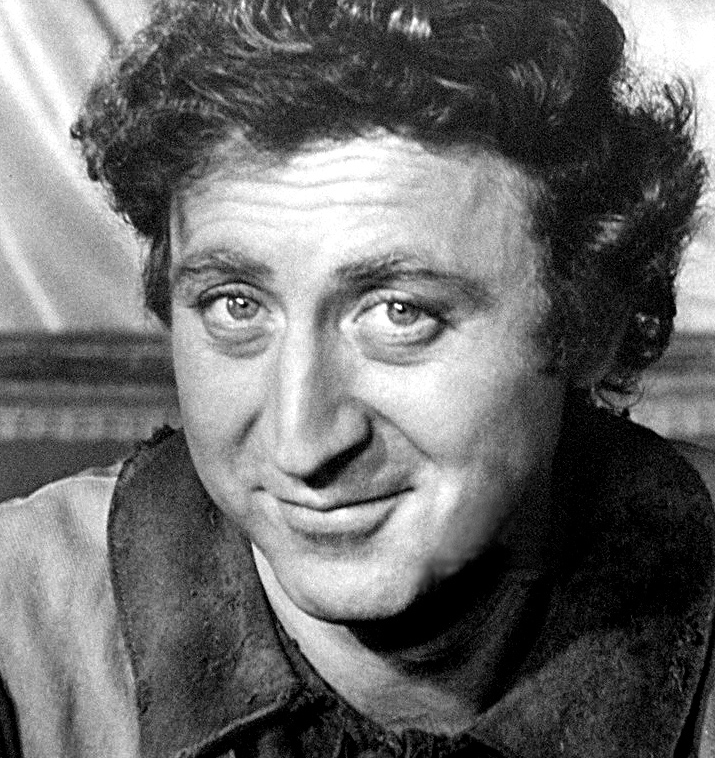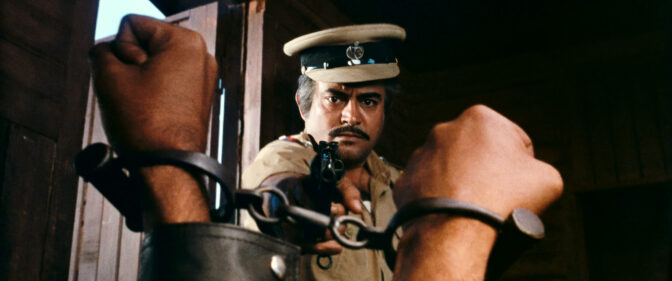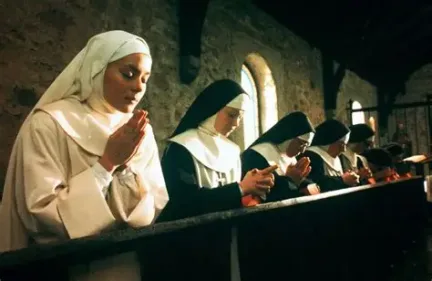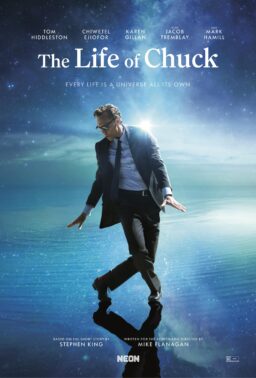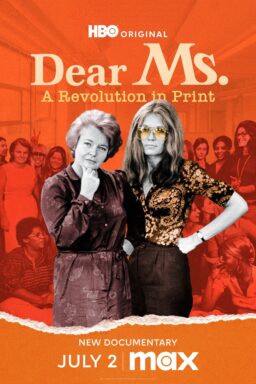When I was very young, maybe four or five, I was placed in front of the TV in time for the 3:00 Movie and told that it was something that I might enjoy. The film that day was Mel Brooks’s “The Producers.” As it began, I thought it was funny—I was amused by Zero Mostel’s blustering even though I clearly did not have any formal grasp of what he was doing with all those old women. Then this other guy appeared—a perfectly nice and normal-looking guy who stood in sharp contrast to the Falstaff-like sight of Mostel. As the scene went on, Mostel continued to browbeat the other guy until he finally shifted from normalcy to near-insanity, clutching his blanket and screaming, “I’m in pain and I’m wet and I’m still hysterical!” This was my first exposure to the genius of Gene Wilder and his ability to come across as both gently placid and frothing mad—often at the same time—and there would be plenty more to come from him over the years. Simply put, the man was a legitimate comedic genius who helped to revolutionize screen comedy with his inspired collaborations with Brooks and Richard Pryor and who enchanted generations of children of all ages with his iconic performance as the bizarre confectioner at the center of “Willy Wonka and the Chocolate Factory.” Wilder passed away today at the age of 83 from complications from Alzheimer’s disease at his home in Stamford, Connecticut. To his legion of fans, this was a cruel blow to be sure but if there is a silver lining to be had, it is that when people go back to look at his work again in the wake of his passing, it will inspire the kind of joy and laughter that he strived to provide throughout his entire career.
He was born Jerome Silberman in Milwaukee, Wisconsin on June 11, 1933—he would eventually take his stage name from Eugene Gant, a recurring character in some of the works of Thomas Wolfe, and Thornton Wilder. He developed an interest in acting at an early age and he would eventually study at the Old Vic in England and with the likes of Uta Hagen and Lee Strasberg. He began to make a name for himself on the off-Broadway scene and eventually moved to Broadway. In 1963, he appeared opposite Anne Bancroft in a production of “Mother Courage and Her Children” and through that, he met Bancroft’s boyfriend, comedy writer Mel Brooks. A few months later, Brooks told Wilder that he had a script that he would be perfect for—a comedy entitled “Springtime for Hitler.” Although Wilder would not hear from Brooks again for a few years, he continued working on the stage and did some television as well, including an appearance on the series “The Defenders” and a televised presentation of “Death of a Salesman.”
In 1967, he made his screen debut with a small but pivotal role in what would prove to be one of the landmark American films. The film was “Bonnie and Clyde” and while his role was not especially large in terms of screen time, it could be argued that the entire film turns on it. He plays Eugene Grizzard, a straight-laced young man who, along with his girlfriend (Evans Evans) are taken hostage by Bonnie (Faye Dunaway), Clyde (Warren Beatty) and their gang following a bank robbery. As they bomb their way through the countryside, the mood is surprisingly jovial with everyone joking and laughing until the moment that Eugene lets slip that he is a mortician by trade. This reminder of mortality throws Bonnie for a loop and she demands that they kick the hostages out—it is too late, however, since it is from this point on that their luck indeed begins to slip away. This is a great scene—one of the best in a film chock full of them—and a lot of it comes from the way that Wilder plays it in such an understated manner. Nowadays, one can watch the film and go “Hey, that’s Gene Wilder!” but back then, viewers most likely came away from it wondering who that guy was and where they could see more of him.

Around this time, Mel Brooks finally completed writing “Springtime for Hitler,” now with the more palatable title “The Producers,” and put it into production with Zero Mostel as the craven Broadway producer Max Bialystock and Wilder as Leo Bloom, the neurotic accountant who figures out that a producer could theoretically make more money off of a flop than with a hit. As I will assume that you have some working familiarity with the film and its tumultuous production, I won’t rehash that. What I do want to do is point you to the absolute genius that is Gene Wilder’s performance. In many ways, he is the straight man of the film in that he has to serve as the audience guide through a story that is not only wildly farcical but also traffics in material that most people back then simply felt was simply not humorous at all. Even more challenging, he has to share the screen with Zero Mostel, one of the all-time scenery chewers, without getting completely overwhelmed by him. Amazingly, he more than holds his own against Mostel throughout—while Mostel blusters and rants to get laughs (which he does), Wilder gets laughs just standing there and looking calm and collected while at the same time suggesting that he is also a ticking time bomb himself. The performance earned Wilder an Oscar nomination for Best Supporting Actor—he didn’t win but his work in it would become legend.
“The Producers” would be a hard act for anyone to follow and his next films, “Quackser Fortune Has a Cousin in the Bronx” (1970) and “Start the Revolution Without Me” (1970) were curiosities at best. His next truly notable film came in 1971 with “Willy Wonka and the Chocolate Factory,” a musical adaptation of the beloved 1964 novel by Roald Dahl. Once again, he hit upon a part that made perfect use of his gentleness and barely contained lunacy that allowed him to guide younger viewers through the darker moments in store for them. At times, he is gloriously cheerful and at others, he lets loose with a rage so genuine and frightening that you completely forget that you are watching a film that was basically designed to sell candy to kids. As hard as it may be to comprehend, the film was pretty much a bomb during its original release—mostly due to parents objecting to the darkness of its tone. In later years, happily, the film would be rediscovered by new generations of viewers who embraced both its oddball tone and, more importantly, Wilder’s performance. The film is now enshrined as one of the all-time classic family films and if Wilder’s performance is not necessarily his best, it is certainly the most iconic of his career.
Wilder next deployed his genial every-madman persona in the funniest vignette in Woody Allen’s “Everything You Always Wanted to Know About Sex (But Were Afraid to Ask)” (1972) in which he played a normal and upstanding psychiatrist who destroys his life after falling in love with a sheep—when they are separated, he is left in the gutter chugging Woolite. The bit is as farcical as can be but Wilder somehow manages to sneak in some genuine pathos into his character that actually adds an intriguing undercurrent to the lunacy. After that film, Wilder began to pen the screenplay for what would become “Young Frankenstein” and during this time, he was offered the role of The Fox in an ambitious live-action musical adaptation of “The Little Prince.” Just before he was to start shooting that film, he received a call from Brooks begging him to replace an ailing Gig Young in the film that he had just begun shooting. That is how Wilder found himself in the role of the recovering alcoholic gunfighter known as The Waco Kid in “Blazing Saddles” (1974). Once again, the role was a perfect fit. As anyone who has seen it can attest, the film is an insane blend of slapstick, edgy racial humor, deliberately anachronistic material and fart jokes. But Wilder helps to give it a center it might not have had otherwise. He takes a role that might have just been a spoof of Dean Martin’s character in “Rio Bravo” and gives it a bit of humanity and develops a real rapport with co-star Cleavon Little that is wonderful to watch. This time around, the critical reaction may have been mixed but the film was an enormous hit at the box-office.

As funny as “Blazing Saddles” is, it would prove to be only the second-best Mel Brooks-Gene Wilder genre parody of 1974 because later that year would see the result of the glory that is “Young Frankenstein.” This cheerfully silly spoof of the old Universal horror films would prove to be one of those rare comedies where everything works—the performances are spot on, the story actually holds together for the duration and if there is a joke in it that doesn’t work, I do not recall it. It also contains what is, for me, the greatest and funniest performance of Wilder’s entire career. His transformation, from the mild-mannered physician Frederick Frankenstein to the mad scientist determined to carry on with the family trade of bringing the dead back to life, is simply magnificent. Wilder took the most ridiculous situations and made them seem almost logical. (Name another actor that you would believe as a character who creates a man out of spare parts and thinks the best way to introduce him to the public is by doing a soft-shoe number to “Puttin on the Ritz”?) Additionally, the film contains two of the funniest things that I have ever seen in a film—the moment where, in the heat of an argument during a lecture, he sinks a scalpel into his own leg and proceeds to carry on as if nothing happened and the one where he responds to an ill-considered charades guess with “Sedagive?”
Thanks to the success of “Blazing Saddles” and “Young Frankenstein,” Wilder was allowed to spread his artistic wings into directing with “The Adventures of Sherlock Holmes’ Smarter Brother” (1975), a spoof of Arthur Conan Doyle’s famous creation. The film has its moments but feels more like someone trying to do their version of a Mel Brooks movie. Over the years, Wilder would occasionally return to the directors chair with varying degrees of success. “The World’s Greatest Lover” (1977), a goofy period comedy in which he plays a would-be actor struggling to become the next Valentino, is probably the best of the bunch—it is more of a structured comedy than the free-for-all that was “Smarter Brother.” He did a vignette for the international multi-story sex comedy “Sunday Lovers” (1980), a film that any sane person should avoid like the plague. “The Woman in Red” (1984) was a dumb sex farce that proved to be a hit with audiences and 1986’s “Haunted Honeymoon” was a dumb horror comedy that didn’t.

Although he would not work with Brooks again, he soon found another significant comedic collaborator when he worked opposite Richard Pryor in the comedy-thriller “Silver Streak” (1976). The film as a whole is kind of dumb but in the moment that Wilder and Pryor finally come together, you can feel the electricity crackling between then—Wilder’s mild-mannered repression vs. Pryor’s hipster cool—in ways that no one could have possibly expected. The scene in which Wilder is forced to don blackface in order to avoid detection is one of those that could have gone wrong in so many ways. But the way that he commits to it, aided by Pryor, is so hilarious that it takes a scene that could have just been kinda racist into one that actually comments on screen racism. The film was a huge hit and he and Pryor would reteam in three more films—“Stir Crazy” (1980), “Seen No Evil, Hear No Evil” (1989) and “Another You” (1991)—and while none of these films were particularly great, each one contained a few moments here and there.
In 1982, he would make a film that, while not particularly notable, would prove to be extremely significant to him. “Hanky Panky” was a “North by Northwest” knockoff that was eminently forgettable except for the fact that it was the film where he met Gilda Radner. The two would fall in love and marry in 1984. Radner would appear in “The Woman in Red” and “Haunted Honeymoon” but their marriage would be sadly short-lived as she succumbed to cancer in 1989. In the wake of her death, Wilder would help establish the Gilda Radner Hereditary Cancer Program and, more famously, Gilda’s Club, a chain of places where people with cancer could come with their families to understand how to live with the disease.
After “Another You,” he retired from the screen but still popped up from time to time. There was the short-lived television series, “Something Wilder” (1994), a cameo as the Mock Turtle in a TV production of “Alice in Wonderland” and a pair of mystery movies, “The Lady in Question” and “Murder in a Small Town” that he wrote and appeared in on cable in 1999. His last acting job was on a couple of episodes of “Will & Grace” which earned him an Emmy award. During this semi-retirement, he wrote a number of books. In 2005, he published his memoir Kiss Me Like a Stranger: My Search for Love and Art. This was followed by the novels My French Whore (2007) and “The Woman Who Wouldn’t (2008), the short story collection What is This Thing Called Love? (2010) and the novella Something to Remember You By: A Perilous Romance (2013).
I have spilled a lot of words here and now most of them seem woefully inadequate in talking about Gene Wilder. This is a man who was evidently put on Earth to make people laugh. He accomplished that in ways few others have ever achieved. One can only hope that he understood just how much people appreciated his work over the years, from that little kid watching “The Producers” at a wildly inappropriate age to a parent introducing their kids to “Willy Wonka and the Chocolate Factory.” People loved his work but more importantly, they loved him as well.

An official statement from Gene Wilder’s family on his passing:
“It is with indescribable sadness and blues, but with spiritual gratitude for the life lived that I announce the passing of husband, parent and universal artist Gene Wilder, at his home in Stamford, Connecticut. It is almost unbearable for us to contemplate our life without him.
The cause was complications from Alzheimer’s Disease with which he co-existed for the last three years. The choice to keep this private was his choice, in talking with us and making a decision as a family. We understand for all the emotional and physical challenges this situation presented we have been among the lucky ones – the illness-pirate, unlike in so many cases, never stole his ability to recognize those that were closest to him, nor took command of his central-gentle-life affirming core personality. It took enough but not that.
The decision to wait until this time to disclose his condition wasn’t vanity, but more so that the countless young children would smile or call out to him ‘there’s Willy Wonka,’ would not have to be then exposed to an adult referencing illness or trouble and causing delight to travel to worry, disappointment or confusion. He simply couldn’t bear the idea of one less smile in the world.
He continued to enjoy art, music, and kissing his leading lady of the last twenty-five years, Karen. He danced down a church aisle at a wedding as parent of the groom and ring bearer, held countless afternoon movie western marathons and delighted in the company of beloved ones. He is survived by Karen[wife], Jordan [nephew] and the Webbs (Kevin, Gretchen, Tucker, Spencer)[wife’s family], along with Jordan’s wife Elizabeth. Gene’s sister Corinne, predeceased him in January of this year.
He was eighty three and passed holding our hands with the same tenderness and love he exhibited as long as I can remember. As our hands clutched and he performed one last breath, the music speaker, which was set to random, began to blare out one of his favorites: Ella Fitzgerald. There is a picture of he and Ella meeting at a London Bistro some years ago that are among each oUr cherished possessions. She was singing ‘Somewhere Over the Rainbow,’ as he was taken away.
‘We are the music makers, and we are the dreamers of dreams.’
Sincerely,
‘Gene’s Kid’
Jordan Walker-Pearlman”

